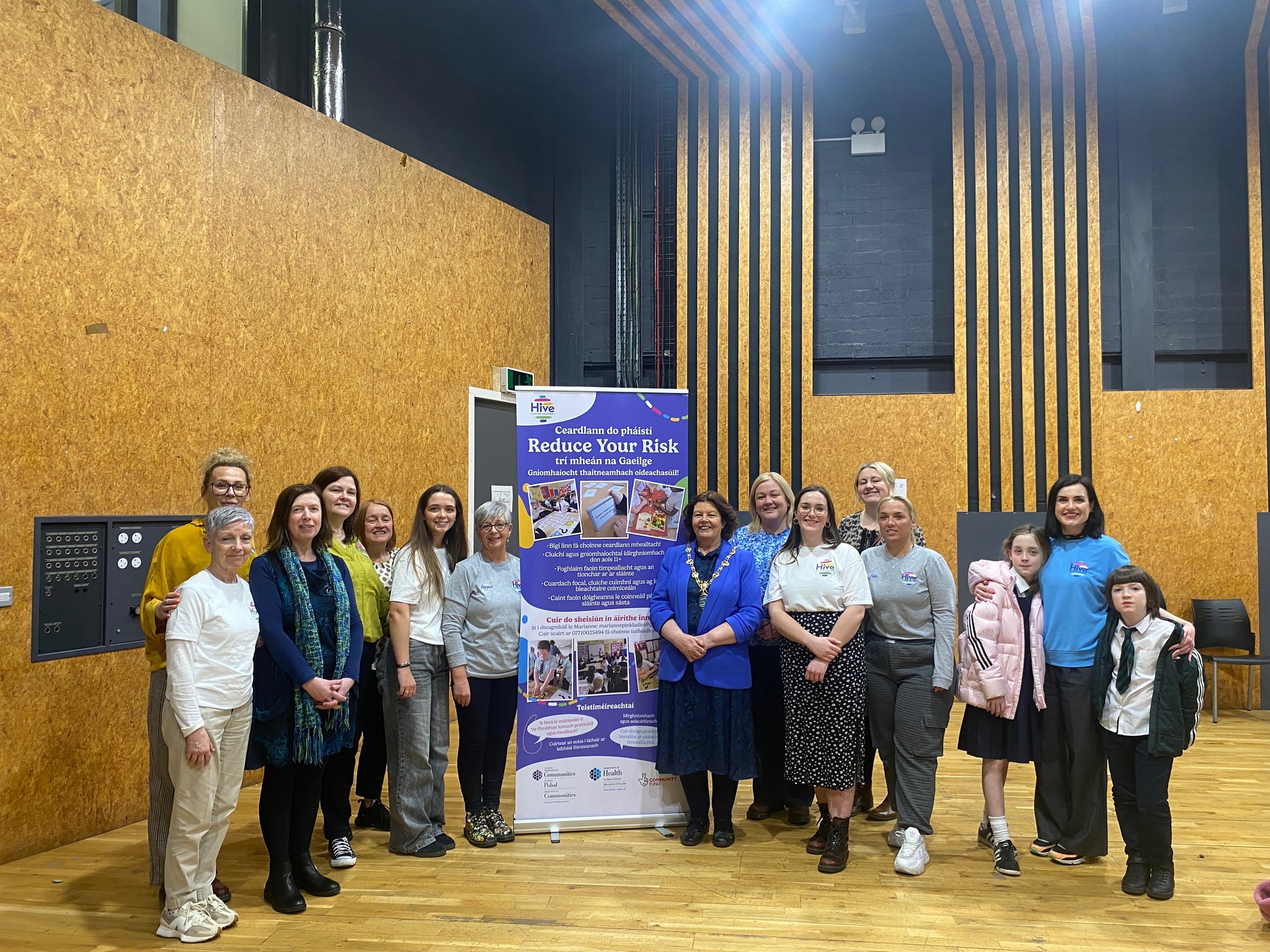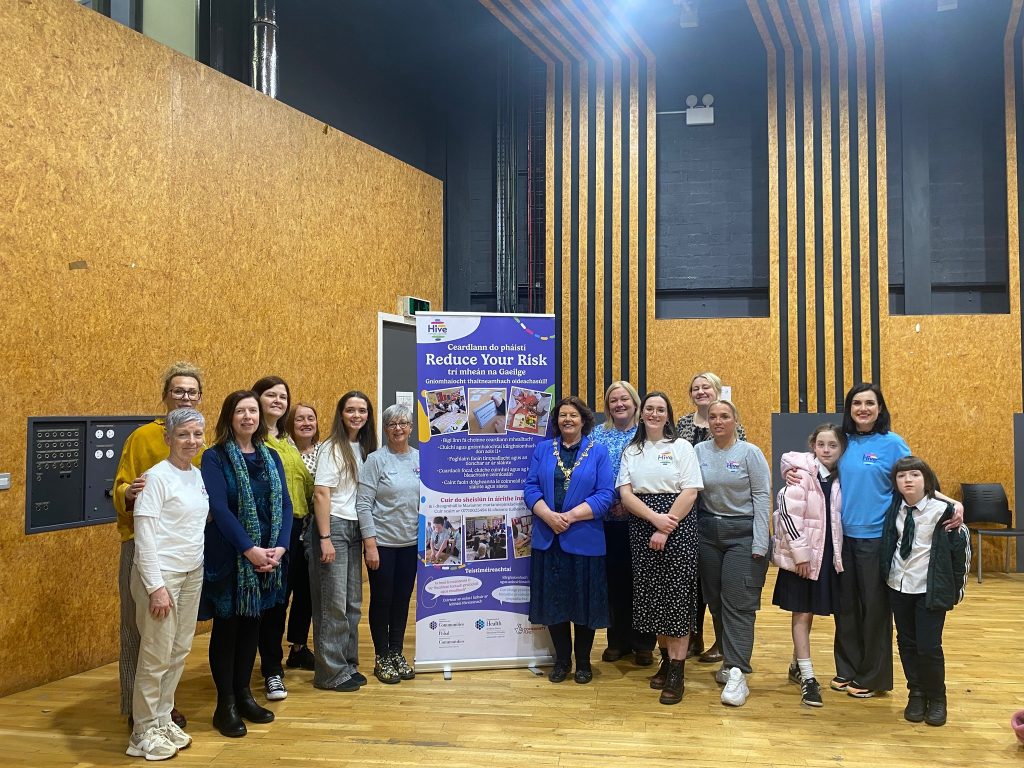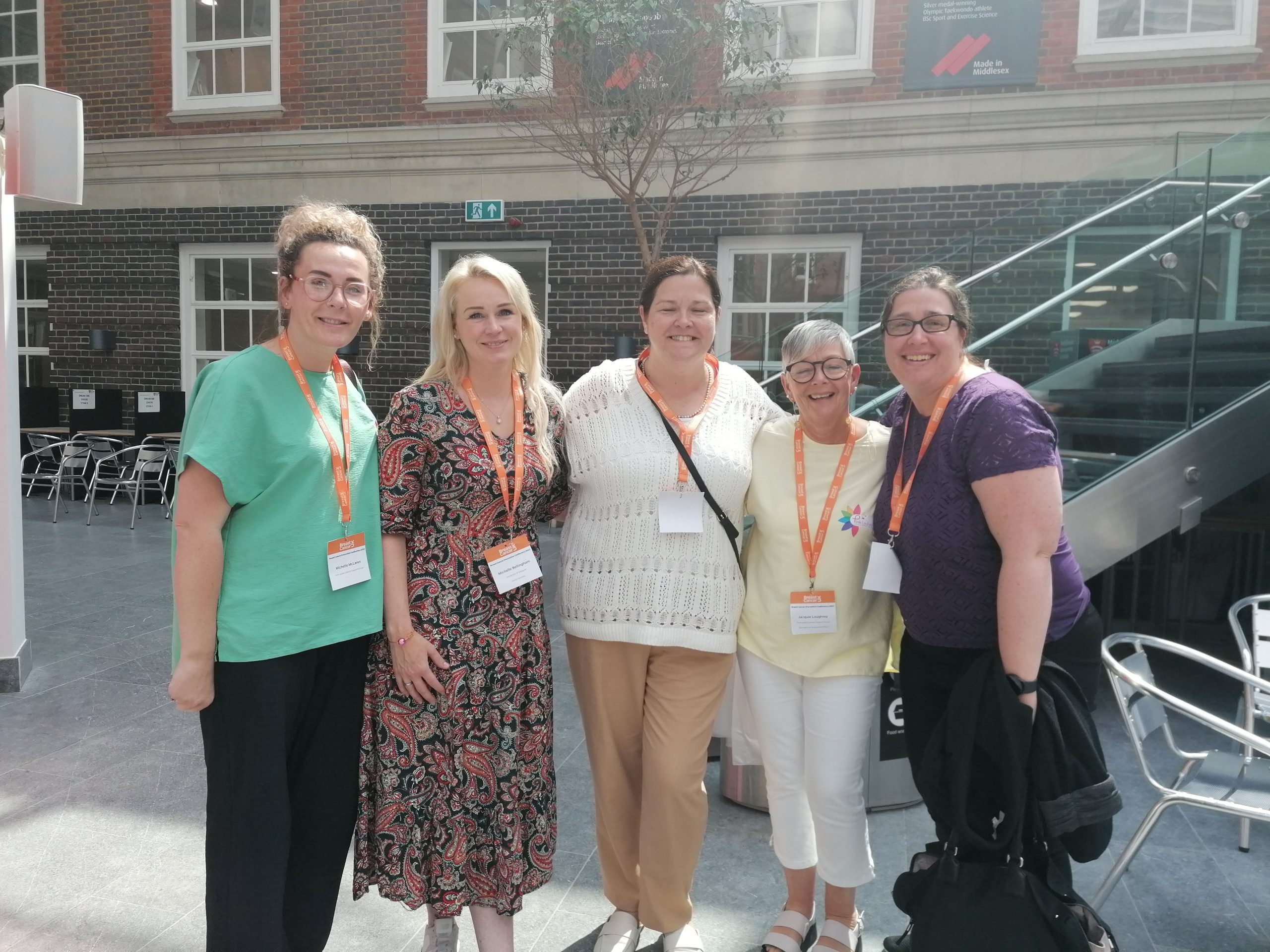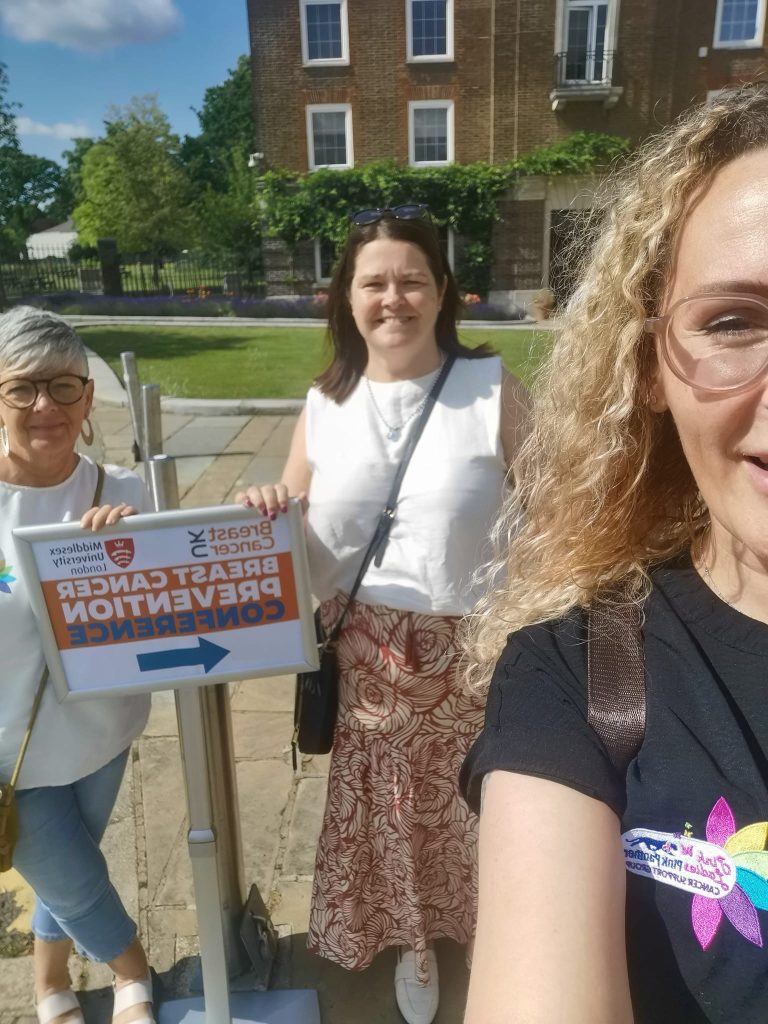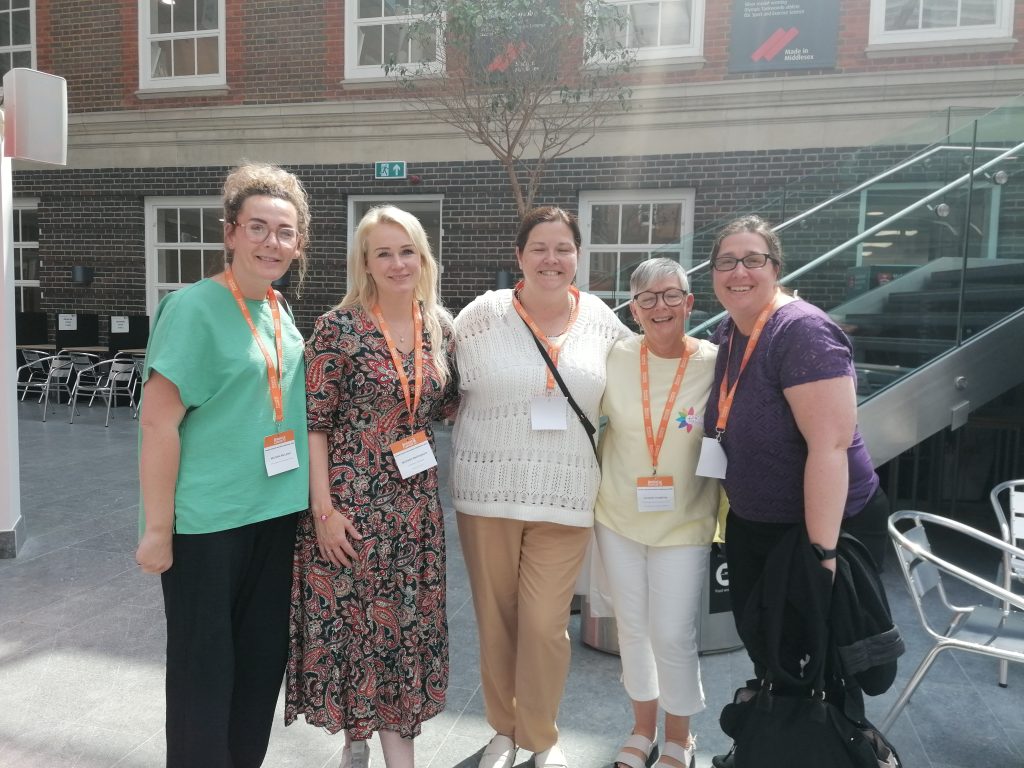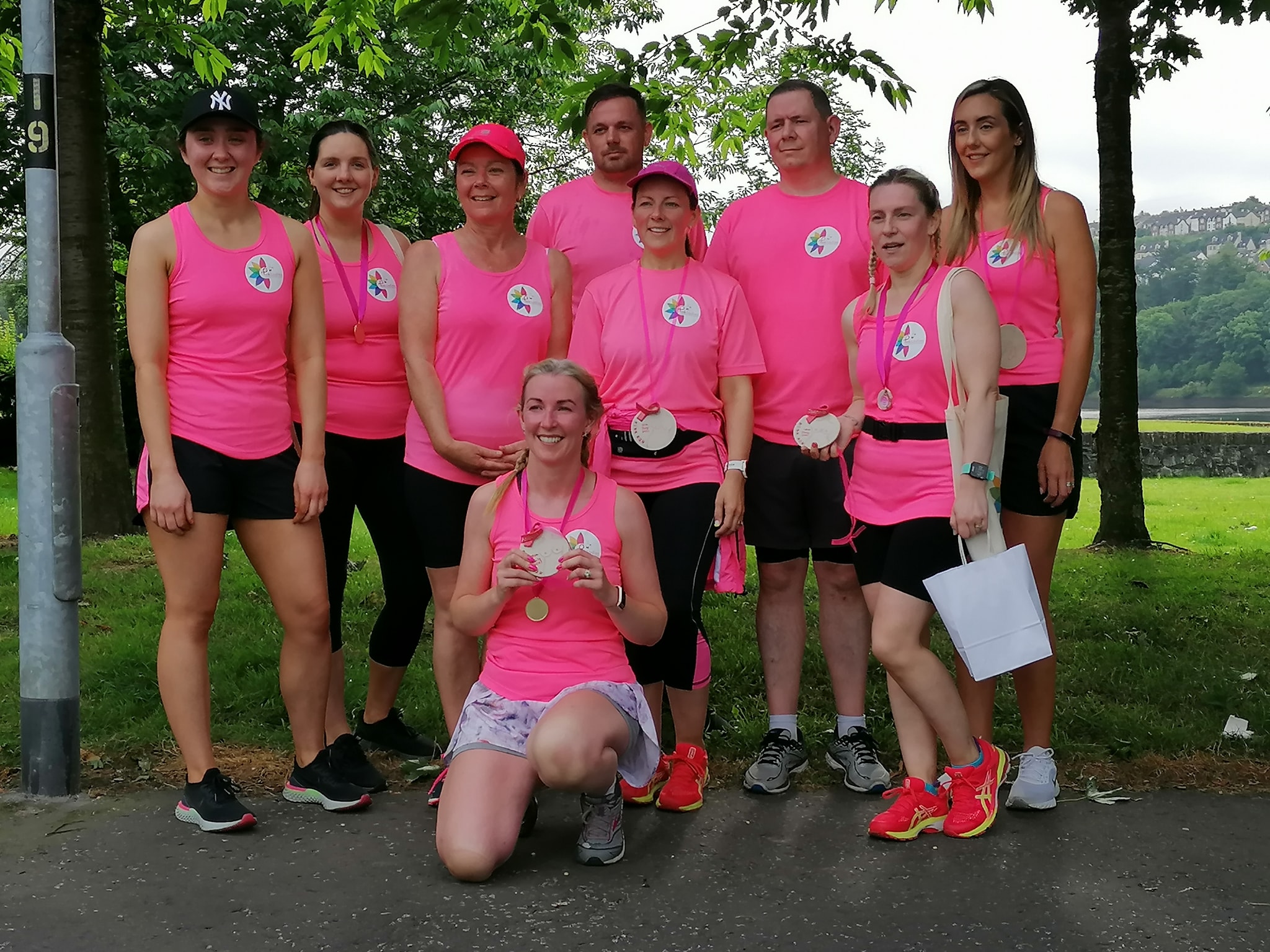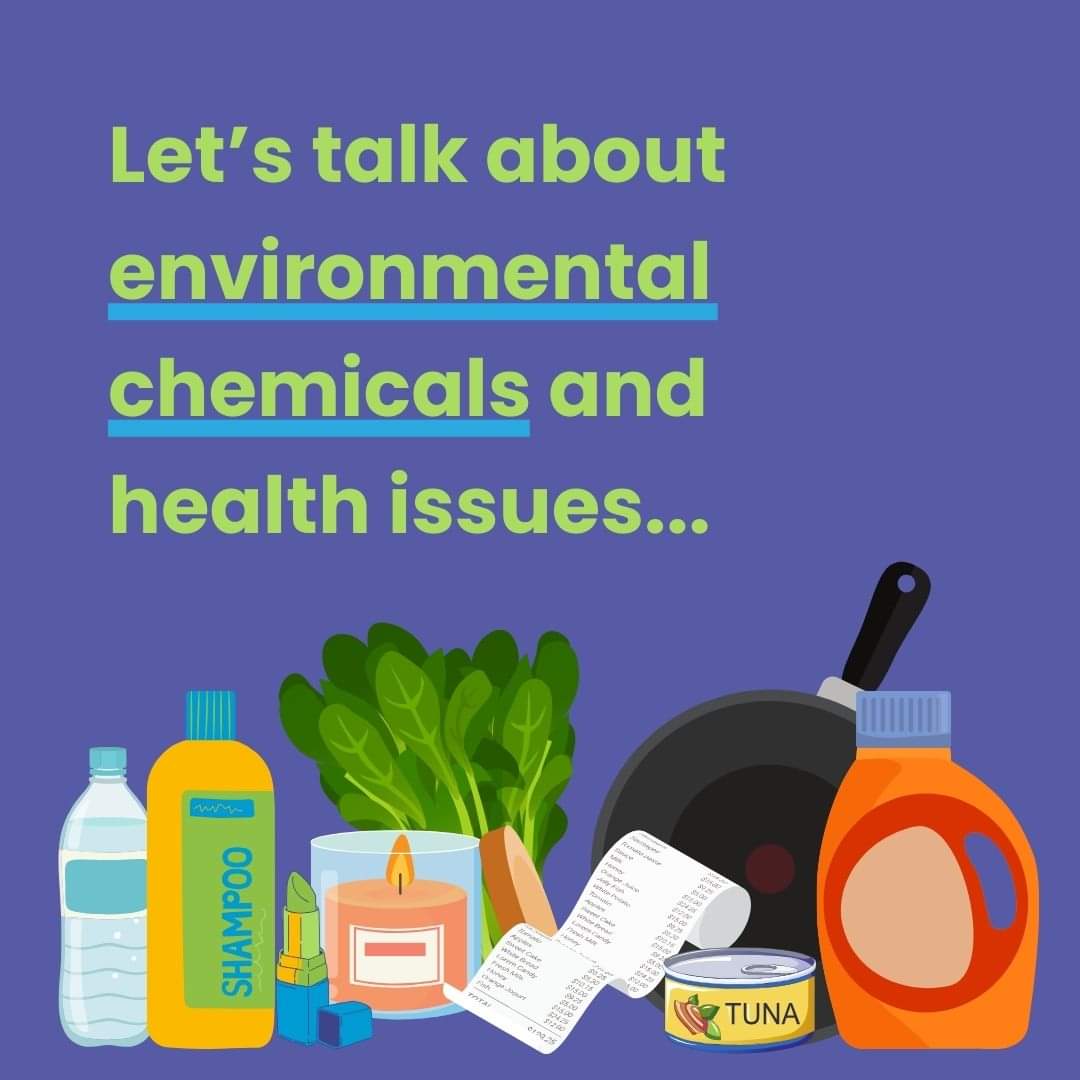
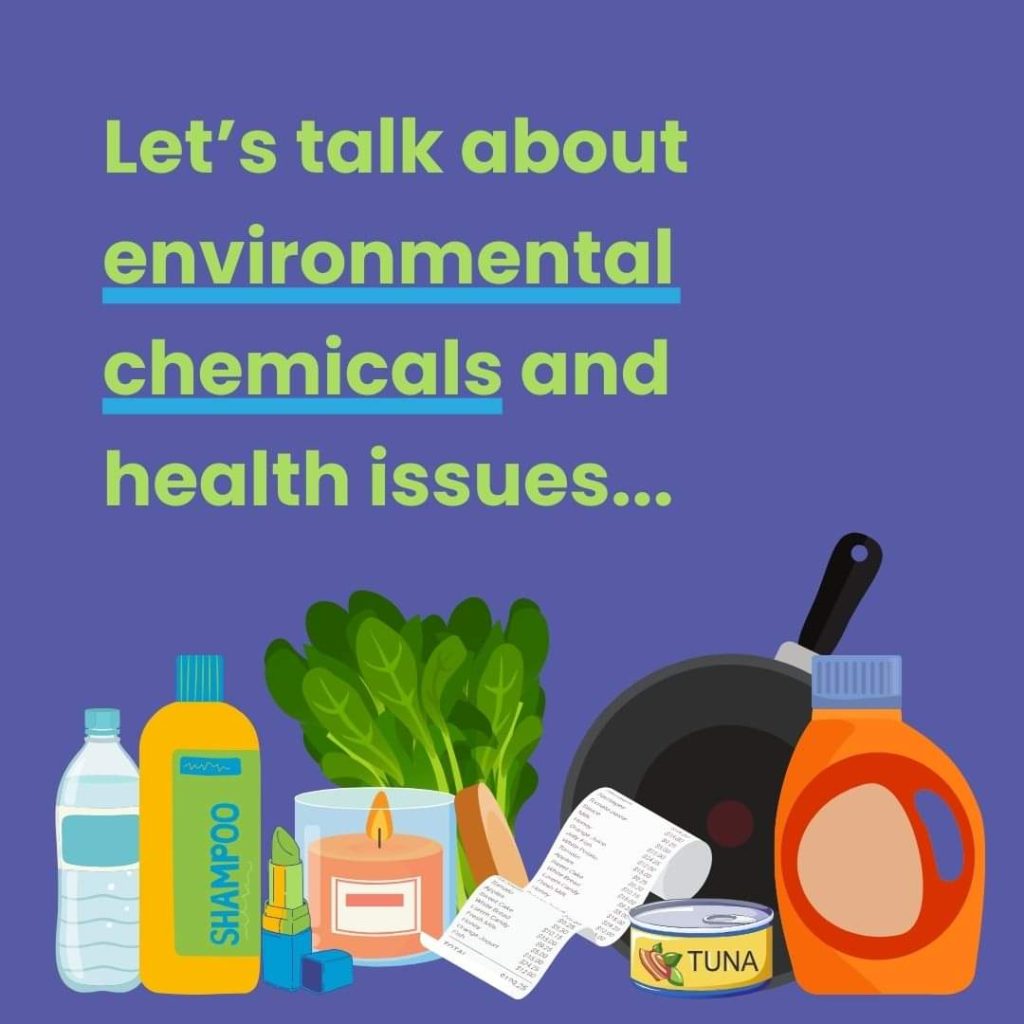
What are environmental chemicals?
Simply put, these are chemicals that we’re exposed to via our environment, which includes the foods we eat, the water and beverages we drink, the products we buy and use every day, the homes we live in, the buildings we work and go to school in, and in fact, the very air we breathe.
Over 350,000 chemicals and chemical mixtures are estimated to be registered globally – that’s a lot!
Why we should be concerned.
While not all of those 350,000 chemicals are harmful ( many have made our lives safer and longer), there is a growing list of chemicals that are known or suspected of causing or contributing to serious chronic and acute health issues in people.
Chemical exposures are linked to everything from hormone disruption, metabolic syndromes, neurological disorders, fertility issues, fetal developmental issues, behavioral issues in children, autoimmune issues, cancers, and more.
And, we are all exposed! For some chemicals, like PFAS, it’s estimated that 99% of people have them in their blood.
The usual thinking when it comes to chemicals is that in order for them to be harmful, we need to be exposed to a large amount. But for some types of chemicals, specifically, endocrine-disrupting ones, very low levels of exposure matter, and are linked to serious health issues.
What can we do?
The first thing to do is not panic! While learning about and addressing environmental exposures can feel overwhelming (especially if you’re learning about it on your own), it doesn’t have to be!
Our goal is to start the process of reducing our exposure to as many harmful chemicals in our daily lives as we can. This typically entails making many small, but meaningful changes in your day-to-day choices and activities – things like minimizing the use of plastic in the kitchen, ditching the home fragrances, swapping to cleaner cleaners, and dusting more frequently, to name just a few.
References: PMID: 31968937 PMID: 37662771 PMID: 31679856
https://chemsec.org/wrappedinchemicals/facts/pfas-fact-5/
https://chemsec.org/wrappedinchemicals/facts/politics-and-regulations-fact-3/
